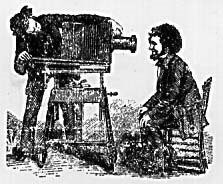Today’s readings dealt with the historical contribution of Europe and Europeans (especially the British, who as was mentioned in class sort of saw themselves as separate from the continental mainland) to the rise and development of Cultural Studies. The readings looked at the European/British beginnings of cultural studies as a field of knowledge – how it began as ‘civilized’ Westerners examining and making judgments about other cultures – but also discussed the later backlash against these Eurocentric origins by “colonial intellectuals” who “challenged the ‘Britishness’ of the New Left” and took into account groups (women, immigrants) who had been previously overlooked (p40).
1) Sardar and Van Loon mentioned that “intellectuals play a key role in Gramsci’s ideas”, specifically “organic intellectuals” (51). New Keywords’ definition of intellectual is enlightening, denoting “a category of people whose social status rest on their claim to intellectual expertise (but who are not simply writers, philosophers, or artists)”.
Gramsci argued that there were “Organic intellectuals’ who arise within every social class except the peasantry, and ‘Traditional intellectuals’, the priests, administrators, scholars, scientists, and so on, who claim a certain autonomy of the social field and thereby betray their lack of it” (190).
It goes on to state that “the central question becomes one about the social interests that go along with possessing and exercising knowledge, about whether those interest are strong and coherent enough to give intellectuals some kind of relative independence as a social group, and bout how those interests ling intellectuals in relation to the power of the state or of a ruling class”, but emphasizes that a variety of theories have been applied in an attempt to answer these questions (190).
2) Wikipedia helps explain Gramsci’s thoughts on “cultural hegemony”:
http://en.wikipedia.org/wiki/Cultural_hegemony
3) UCLA Prof’s page on “Cultural Studies and Ethics”, basically a short essay that summarizes/reviews British Cultural studies and their ties with media, ethics, politics…
http://www.gseis.ucla.edu/faculty/
Pretty sweet little youtube bite-sized lectures on Cultural Theory (this one's Marxism 101: Althusser's Concept of Ideology):
http://www.youtube.com/watch?v=Wz3YNMPMNzU
announcements
This blog was created by and for students in an Introduction to Cultural Studies class at the University of Washington. Through an investigation of urban experience and representation--in theory, in graphic novels and in our own "readings" of Seattle's University District--we considered the formation and history of cultural studies as an (anti)discipline, with a special emphasis on the questions, "What does cultural studies do, and how do you do cultural studies?"
If you'd like to know more about the class, the blog or our U-District artifact project, please contact Gabrielle Dean: gnodean@u.washington.edu.
If you'd like to know more about the class, the blog or our U-District artifact project, please contact Gabrielle Dean: gnodean@u.washington.edu.
Subscribe to:
Post Comments (Atom)
blog archive
-
▼
2008
(92)
-
▼
April
(35)
- Identity in City of Glass
- History of Origins: Race Studies
- History of Origins: Gender Studies
- History of Origins: Gender Studies
- History of Origins: America
- History of Origins: Race Studies
- History of Origins: Gender Studies
- History of Origins: Race Studies
- History of Origins: Race Studies
- History of Origins: Media and Science
- History of Origins: Media and Science
- History of Origins: Gender Studies
- History of Origins: Media and Science
- History of Origins: European Theory
- History of Origins: European Theory
- History of Origins: European Theory
- History of Origins: European Theory
- History of Origins: European Theory
- History of Origins: America
- History of Origins: European Theory
- History of Origins: America
- History of Orgins: European Theory
- History of Origins: European Theory
- History of Origins: Great Britain
- History of Origins: Great Britain
- Cultural Studies in Britain
- Cultural Studies in Britain
- History of Origins: General
- History of Origins: General
- History of Origins: General
- History of Origins: General
- "Orientalism"
- Are You an Author?
- "Paris, Capital of the 19th Century"
- READING: A WEB MODEL
-
▼
April
(35)

No comments:
Post a Comment